Do you wonder can stress cause hormonal imbalance? Is hormone imbalance in women is linked to mental health?
Where you’re on birth control pills, worried about your blood sugar or estrogen levels, or even in menopause, you want information on how to stress related to hormonal imbalances.
“Stress” is something that we all have experienced from time to time and so it is something that has become a part of most of our lives, whether it is due to work, relationships, traumatic situations we have all been affected by it in some way or the other.
So what exactly is stress and how can it cause a hormonal imbalance in the body? “Stress” is any feeling of tension that may be emotional or physical and it all starts with the sympathetic nervous system, which triggers the “fight or flight” response that takes over when we feel stressed.
Stress Is the Trigger
You know that feeling. The phone rings in the middle of the night and your body reacts by going into full panic mode. Or you see your boss’s name in your inbox on your day off and your mind goes into hyperdrive trying to figure out what he could possibly want.
👉🏽 RELATED POST: How to Leave Work At Work

Your heart races, your breath quickens, and your muscles tense for action. It’s your body’s way of preparing you to act quickly in times of danger. Feeling a bit stressed out every now and then is not something out of the ordinary but if someone is experiencing stress most of the time for longer periods that can have a very negative effect on their health.
Being stressed out all the time comes with a lot of downsides such as an imbalance in the body’s hormone levels, insomnia, obesity, and also low libido. Because of the elevated stress levels in the body, the balance between the normal hormone levels is disrupted.
As a reaction, there is an increase in the secretion of various hormones such as prolactin, glucocorticoids, growth hormone, and catecholamines, which helps a person to adapt to their changed situation.
Let’s take a look at how stress impacts your body and your hormones and how it can even contribute to issues like chronic illness, digestive issues, and premature aging.

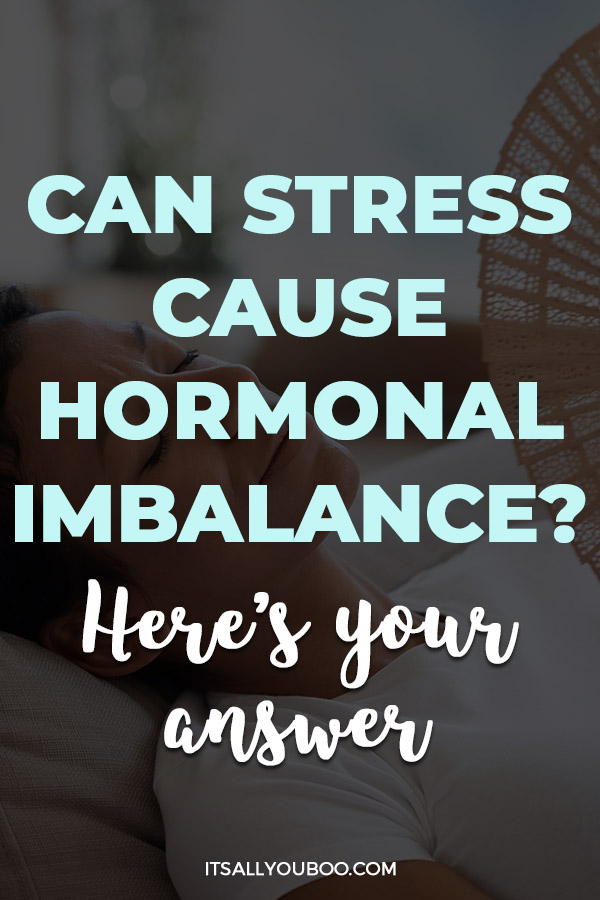
This is informational, not medical advice, be sure to seek professional and medical help if you need it.
How Does Stress Affect Your Hormones?
Stress hormones are naturally created by the body in the endocrine system including adrenaline and cortisol (aka epinephrine) Stress occurs anytime we feel danger, pressure, or strain. It can be a psychological, physical, or emotional response. The body responds to stress by releasing “stress hormones” into the bloodstream.
These hormones are designed to increase your strength, focus, and ability to react in stressful situations. While under stress your body experiences a faster heart rate, along with heightened blood pressure levels, sharper memory which all come down to their normal levels after the stressful situation has been dealt with.
In short-term situations, these hormones can be a good thing, chronic stress on the other hand is where a person is constantly faced with challenges and in response, the body keeps on producing these stress hormones with little to no time for recovery in between which proves to can be detrimental to a person’s wellbeing.
👉🏽 RELATED POST: How to Finally Deal with Stress
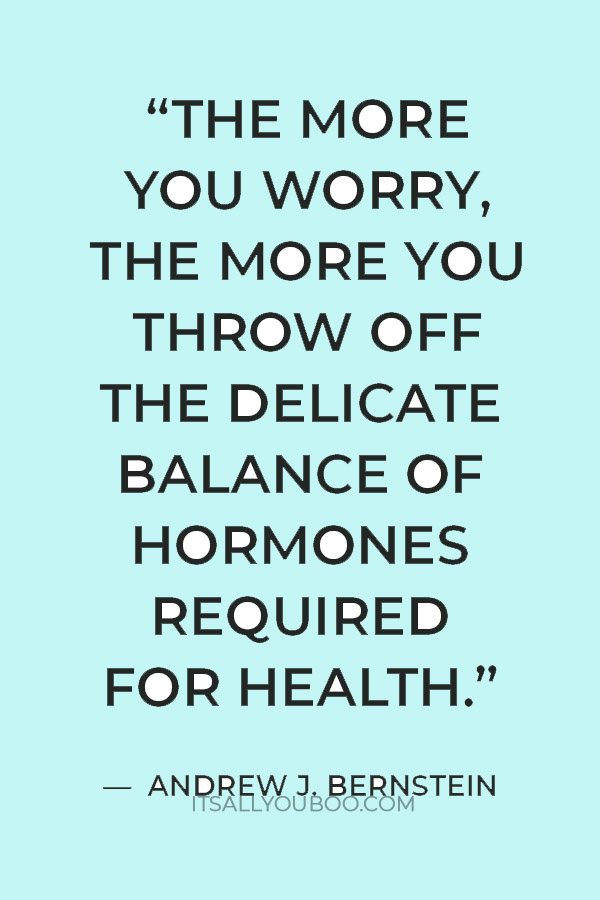
What are The Three Stress Hormones?
#1. Adrenaline
Imagine leaving your house for a run, your mood is elevated and you are singing along to your favorite song and suddenly you run into a dog which immediately starts to chase you, and somehow you are able to dodge it. You hear your own heartbeat pounding in your ears and you are shaking all over.
That is how your body reacts in a fight or flight mode with adrenaline playing a big role in it. Adrenaline is a hormone that prepares your body to act right in such situations which mainly occur when the body is faced with danger or threat.
Adrenaline is that amazing thing that helps people utilize their body’s potential to the fullest when faced with danger, such as lifting heavy things or running faster than they have ever done. The body makes that possible by increasing blood flow to the muscles and bringing forth a number of other changes that help a person fight off the danger.
Adrenaline is made in the medulla which is located in the adrenal glands and is immediately released in the bloodstream when faced with a stressful situation. It is responsible for immediate reactions, like rapid breathing and heart rate. Adrenaline also triggers a surge of energy and focus in case you need to run away from danger.
#2. Norepinephrine:
Also known as noradrenaline, it is a hormone that is classified both as a stress hormone as well as a neurotransmitter that transmits signals between the nerve endings. Like adrenaline, it is also produced in the medulla of the adrenal glands and helps the body in a fight or flight situation.
It also shifts blood flow away from areas where it might not be needed, such as your skin, to your muscles, which may require increased blood flow to flee. Apart from that, norepinephrine also increases the heart rate, releases sugar into the bloodstream for more energy, and replenishes the muscles with more blood flow. Its role as a neurotransmitter is to help a person to be more alert and focus on better task completion.
👉🏽 RELATED POST: Quotes About Calming Down

Norepinephrine also plays an important part in the regulation of mood levels in a person. Low levels of it are associated with post-traumatic stress disorder, anxiety, attention deficit hyperactivity disorder, depression, difficulty in focusing, and low blood pressure.
Don’t worry about opt-in at the end, I will paste in the most appropriate one.
#3. Cortisol
Cortisol is commonly called the stress hormone and plays an important role in helping the body during stressful and dangerous situations. Apart from its role as the body’s main stress hormone cortisol also helps regulate other important functions in the body which include controlling blood pressure, the release of insulin, the metabolism of glucose, and regulation of the body’s inflammatory response to certain triggers.
Its effects are generally felt a few minutes into a stressful situation because its release requires a multi-step process involving two parts of the brain, the pituitary gland, and finally the adrenal gland. The pituitary gland along with the hypothalamus helps regulate the level of cortisol in the bloodstream, in case it is too low or too high the adrenal glands work in order to create an optimum balance.
Optimal amounts of cortisol help to regulate numerous body functions, like reproductive drive, growth, digestion, immunity, and even blood pressure. Women experience potentially abnormal ovulation due to high cortisol and stress during their menstrual cycles.
You are starting to find your answers to whether stress can cause hormonal imbalances. Let’s explore how exactly those imbalances occur.
👉🏽 RELATED POST: Ways to Manage Stress in the Workplace
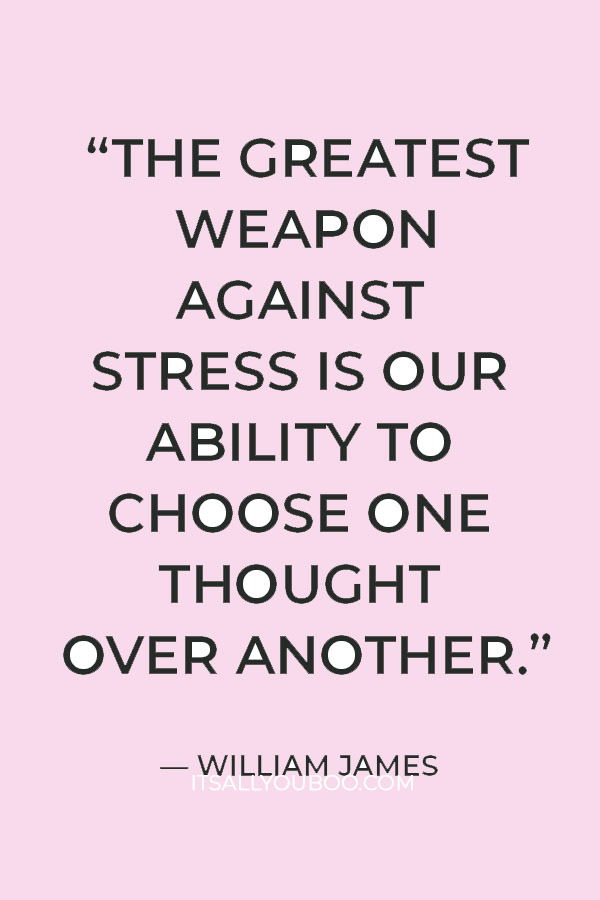
The 3 Effects of Stress On The Body
What are three effects that stress has on a person’s body?
The effects of stress on the body can be subtle, and you may not even realize the stress-related hormonal imbalance in you until the symptoms become elevated and severe. You may think your headaches, insomnia, or inability to focus are just part of life, but it turns out chronic stress is to be blamed in such cases.
Here are three common ways chronic stress and elevated stress hormones impact your body:
#1. Premature Aging
Aging is something we all have to face the effects of at one point in our lives but when you have to deal with it ahead of its time well, that is an entirely different thing. While short-term stress can help a person be more alert and complete tasks, long-term or chronic stress has the opposite effect on the body including premature aging of the skin. The stress hormone cortisol breaks down collagen and elastin in the skin.
The more stressed out you are, the higher your cortisol levels will be, and the harder it will be for your body to naturally produce enough collagen and elastin to repair the damage. What tops the list of various causes of wrinkles?
The loss of collagen and elastin. Not only that, but you’re less likely to take care of your skin, get enough sleep, exercise, or eat a healthy diet when you’re stressed.
Can stress cause hormonal imbalance leading to premature aging, and dullness even in the young individual? Absolutely yes. This can have a major impact on skin health, leaving it looking dull and tired, and more prone to wrinkles.
👉🏽 RELATED POST: Skin Care Routine For Stress Breakouts
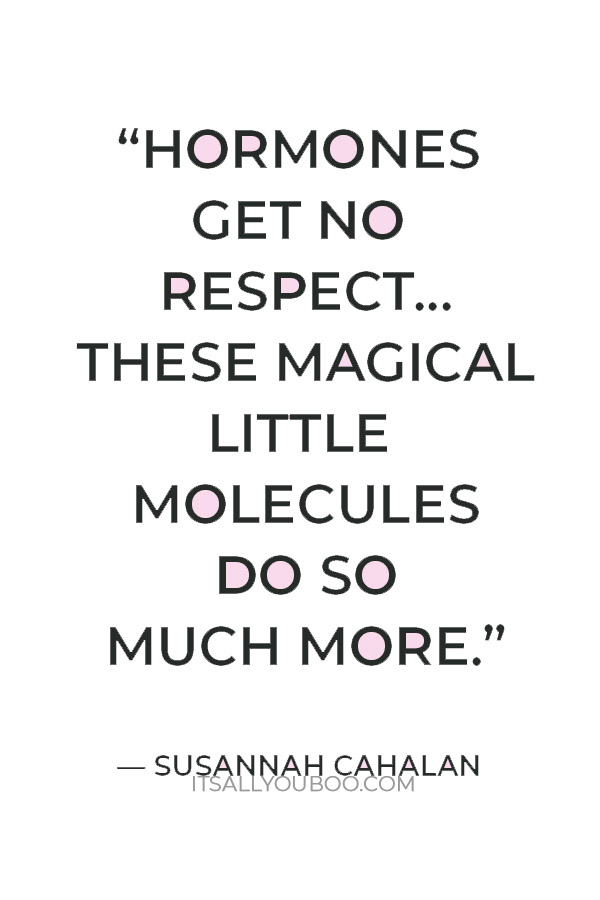
#2. Respiratory and Cardiovascular Effects
Stress hormones cause you to breathe faster in order to evenly pump oxygen-rich blood to your muscles in case you need to flee in times of danger.
Unfortunately, if you already suffer from breathing issues, like emphysema or asthma, stress can make it more difficult for you to breathe. Stress causes the heart to work harder to pump blood constricting the blood vessels which technically helps the blood to easily reach the muscles for the required strength and agility in a fight or flight situation, unfortunately, it also increases blood pressure.
And if you are someone that already suffers from high blood pressure, being stressed out all the time can make the condition worse and put you at risk of a possible heart attack or a stroke. These responses aren’t a major issue if you’re only stressed occasionally. But chronic stress can make your heart and respiratory system work too hard for too long, putting your health in great danger.
If you’re at higher risk for these issues, it’s important to reduce your stress and have a hormone balance, to avoid medical emergency situations.
👉🏽 RELATED POST: 3 Deep Breathing Exercises for Stress
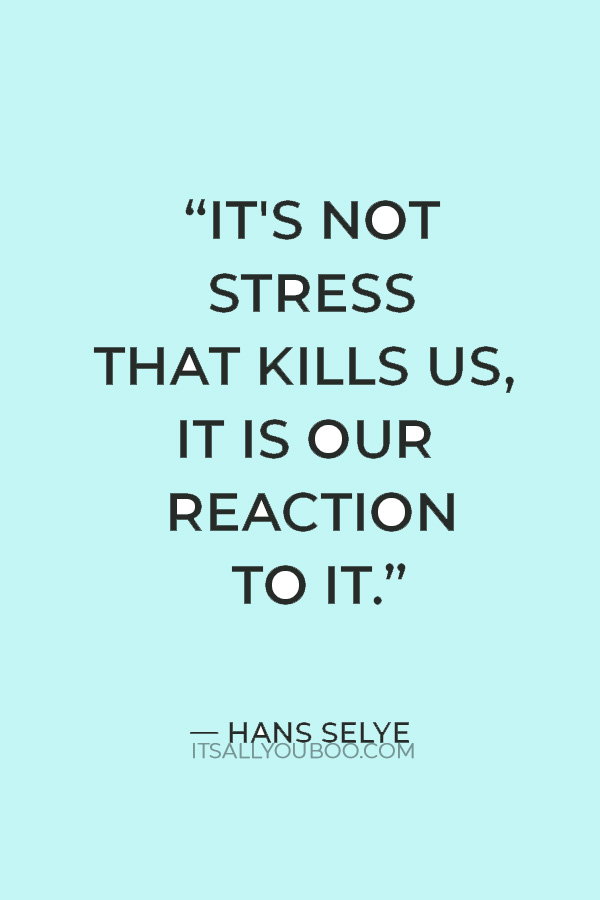
#3. Digestive Effects
When you are faced with a stressful situation the liver in order to give your muscles an extra boost of energy starts pumping sugar into your bloodstream. The raised level comes back to normal when the stress has passed but in the case of chronic stress the level of glucose stays at a spiked level which your body is unable to bring down and hence suffering from chronic stress can also subject a person to develop type-2 diabetes.
Aside from that, the spike in the level of hormones, along with an elevated heart rate and rapid breathing, can also have a detrimental effect on your digestive system. These effects can trigger an increase in the amount of stomach acid produced which can cause heartburn and acid reflux, and even increase your risk of developing stomach ulcers or making existing ones worse.
Long-term stress also affects the normal movement of food through your digestive system, causing diarrhea, nausea, constipation, or an upset stomach.
What are the Signs of Hormonal Imbalance?
Chronic stress can also trigger a hormonal imbalance in the body. This happens because chronically elevated cortisol levels cause a domino effect, affecting the production of every other hormone our bodies produce, including hormones produced by the thyroid and the sex organs.
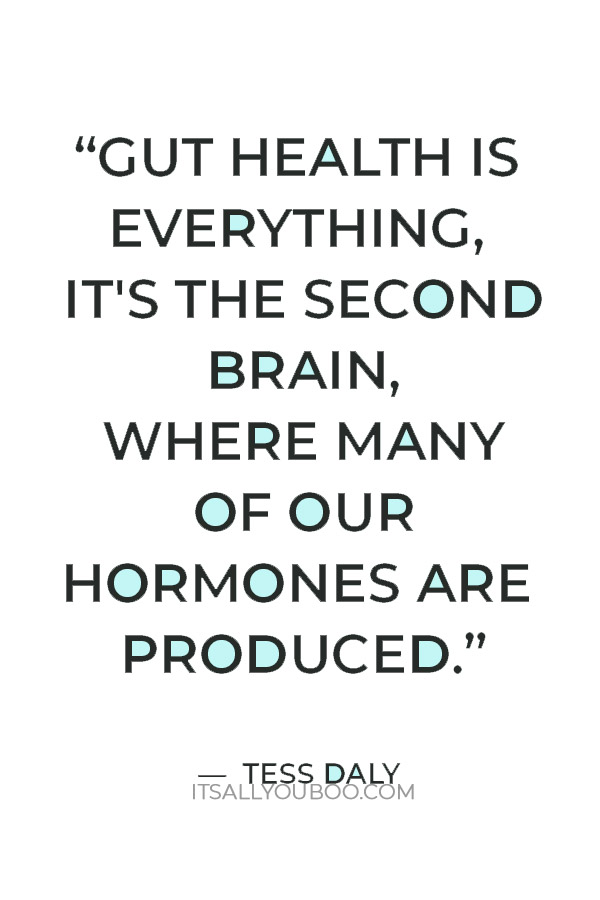
Common symptoms of a hormonal imbalance include:
- Mood swings
- Brain fog
- Lack of energy or difficulty in focusing
- Anxiety and depression
- Unexplained weight gain or weight loss
- Irregular, missed, or painful periods
- Infertility
- Acne and skin issues
- Low sex drive
- Hair fall or thinning of hair
Find Simple Ways to Manage Stress
So to conclude can stress cause hormonal imbalance? The answer is yes, it can and it does. Stress is something that we cannot entirely avoid because it is so deeply ingrained in our lives today.
While avoiding stress entirely can be a difficult task managing it can be achieved fairly easily. If you’re noticing symptoms associated with chronic stress, finding healthy ways to manage your stress can improve your hormone levels and your overall health. Yes, there is hormone replacement therapy, but you don’t have to start there.
Get Your FREE Emotional Wellness eBook
Please remember to be sure to seek professional and medical help if you need it.

Here are some simple strategies to explore:
- Establish simple routines, such as a skincare routine, which can help you feel more in control.
- Practice mindfulness techniques like meditation, yoga, and deep breathing.
- Exercise regularly.
- Spend time with loved ones.
- Set aside time for your hobbies, such as reading, writing, or drawing.
- Getting plenty of sleep and eating a healthy diet is also crucial.
If you feel that stress is affecting your health, it’s always a good idea to talk to your healthcare provider or visit a clinic. He or she can help you rule out any other potential causes for your symptoms and recommend additional coping tools to get you on the right track.
Can stress and anxiety affect hormones? Can stress cause hormonal imbalance? Find out how and why here. #Stress #MentalHealth #Brain #Hormones
So, can stress cause hormonal imbalance?

More About Guest Contributor
Nicole McCray has been obsessed with beauty and fashion since she was a young girl, always flipping through Vogue and stealing her mother’s cosmetics bag to experiment. She’s a former wedding makeup artist who loves spending her free time trying new products. While Nicole’s days are now spent contributing to fashion, beauty, and lifestyle sites, she can still always be found putting looks together, even if it’s just for a trip to the grocery store!
Last Updated on May 25, 2023
